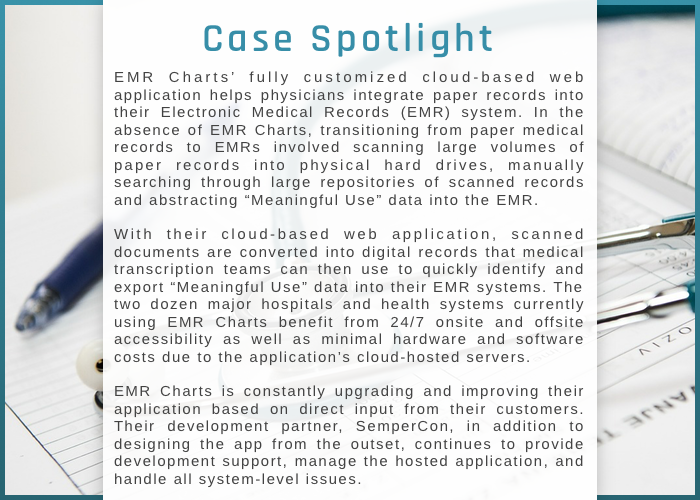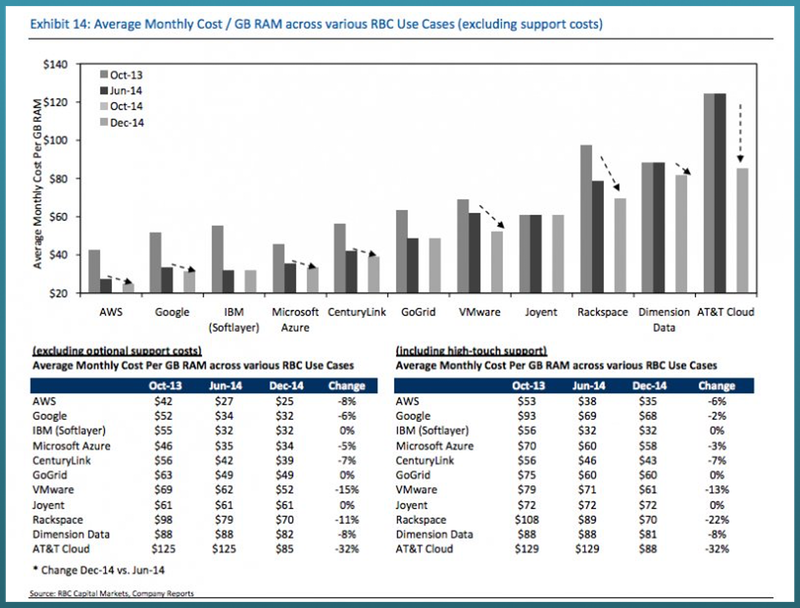The specialization of Software-as-a-Service (SaaS) is one of the foremost trends in software. Today, the most popular cloud-based web and mobile applications are deployed via turnkey SaaS solutions that serve a variety of vertical markets. Businesses big and small are embracing cloud-based mobile solutions to enhance their day-to-day operations. With Microsoft Office 365 for internal productivity, Salesforce.com for CRM, Slack for internal communications, and Box for data storage, businesses are committing their internal operations process and staff to SaaS-based software. These companies are bestowing their data to the cloud, which requires no hardware, offers instant updates, and extends onto multiple device interfaces. With minimal upfront costs, it’s easy to understand why companies would turn to those more reliable, widely-used SaaS enterprise solutions.
Within the next generation of the digital enterprise, the most essential cloud applications to businesses’ competitive advantage will be custom designed to serve as the core backbone of business processes. Although standard SaaS solutions can be implemented quickly with minimal risk, they are designed to address the lowest common denominator of business requirements and often only marginally enhance the core operations of the company. Migrating away from these platforms can also be time-consuming and expensive. Data ownership and security limitations can also jeopardize businesses’ competitive advantage. It’s no wonder that IT leaders are beginning to approach software development and procurement as a form of innovation.
Fully customized mobile and web applications running on cloud-based backends do more than simply support day-to-day tasks, rather driving transformation, collecting company IP and distinguishing businesses from their competitors. These solutions can either deliver increased value to customers or enable employees to improve their productivity. Businesses who deploy customized mobile and web applications improve productivity, efficiency, collaboration, cost, and customer satisfaction. A recent survey found that 82% of companies are increasing their revenue with employee-facing custom mobile apps, which saved 7.5 hours per employee per workweek on average. These types of custom apps are most used by sales professionals, IT departments, and business operation teams for data sharing and workflow integration.
Applications requiring total customization are more commonly being leveraged to enhance the internal and external structure of businesses in the following ways:
- Seizing full data control. As data security and ownership becomes a more pressing concern, businesses across all industries are beginning to design and deploy custom-built mobile and web solutions. For healthcare organizations customized app development is already a must given strict HIPAA and HITECH security requirements.
- Lowered Costs. Rapidly falling maintenance costs are making custom web and mobile app development a more viable option. Cloud hosting offerings from major players like Amazon, Google, IBM, Rackspace are becoming more competitively priced while offering stronger security and reliability. Cloud computing platforms have also advanced, making development and maintenance much easier to manage.
- Specialization can produce competitive advantages. Custom mobile and web apps often focus on highly specific functions and verticals that make their solution more tailored and effective than widely available SaaS solutions. Unlike with standard SaaS apps, the features of custom applications can be tailored based on businesses’ unique internal workflow processes, customer needs and other strategic addressable gaps.
To conclude, when deciding between designing custom-built apps and SaaS solutions, it comes down to convenience versus advancement. The biggest hurdles companies face when designing custom mobile and web apps are UX/UI design, code development, initial integration with current network services, and ongoing tech support once the application is in place. To address these requirements, businesses can either commit to building in-house full-stack mobile/web teams or make use of best-in-class custom app development vendors. Those companies that embrace innovation by developing their own custom applications will benefit from sustained increases in productivity, as well as develop core intellectual properties and a true competitive position in the market.



